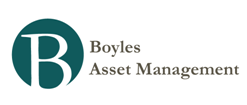Hussman Weekly Market Comment: Whipsaw Traps
With respect to Europe's perceived "solution" to its debt crisis, the 50% write-down of Greek debt is appropriate (better than 21%, but probably still light), but it's not clear that this includes a writedown of Greek obligations to "official" holders such as other European governments and agencies. If not, it's unclear whether the writedown is really deep enough to allow Greece to avoid further debt problems several years out.
Likewise, I suspect that investors are celebrating various "headline" figures (such as "1 trillion euros") without much understanding of what they are cheering about. The European Financial Stability Facility (EFSF) is a Luxembourg corporation to which European states have committed 440 billion euros of backing, beyond which the EFSF must issue its own bonds to investors in order to make loans (not grants) to recipient countries or banks. There are two basic options that the EFSF contemplates for "leveraging" its 440 billion euros (which will actually probably be closer to 250 billion for all of Europe after amounts needed for Greece and bank recapitalizations). One is to issue "credit enhancements" or "partial protection certificates" that would be sold along with the new debt of European governments, where the certificates would provide first-loss protection of say, 20% of face value. Alternatively, the EFSF could construct a "special purpose vehicle" or SPV in each given country - basically an investment company formed to buy European debt - where the EFSF would "provide the equity tranche of the vehicle and hence absorb the first proportion of losses incurred by the vehicle."
So to start with, the EFSF is not actually an operating "bailout fund" at present - it's a shell corporation with a business plan and a certain amount of promised capital - not yet in hand - from European governments, in search of additional funding from private investors. Its intended business is to a) partially insure European debt, using capital from European governments, which these governments will obtain by issuing debt to investors, or b) to purchase European debt outright, by issuing EFSF debt to investors, leveraging capital obtained from European governments, which these governments will obtain by issuing debt to investors.
In effect, European leaders have announced "We have agreed to solve our debt problem, leveraging money we do not have, to create a fund, which will then borrow several times that amount, in order to buy enormous amounts of new debt that we will need to issue."
- John Mauldin: The Good, The Bad, And The Greek (risks)
Greece was (and is) the first real test of the euro. Until the Greek crisis, there was no real need for any eurozone country to actually write a check for any other member. Ireland obligingly shouldered the responsibility for its own bad bank debts, paying...
- Satyajit Das: Why Germany Can't Bail Out Europe
Germany is indirectly exposed through its support of various official institutions like the European Union (EU), the European Central Bank (ECB), the International Monetary Fund (IMF) and special bail-out funds. As of April 2012, the exposure of ECB alone...
- John Mauldin: Unintended Consequences
Let me introduce Mauldin's Rule of Thumb Concerning Unintended Consequences: For every government law hurriedly passed in response to a current or recent crisis, there will be two or more unintended consequences, which will have equal or greater negative...
- Hussman Weekly Market Comment: Not Over By A Longshot
On Friday, the yield on 1-year Greek government bonds closed above 135%. As I've noted in recent weeks, the bond markets continue to reflect expectations of certain default on Greek debt. All they are working out now is the recovery rate. As of last...
- John Mauldin: Kicking The Can Down The Road One More Time
My friends at GaveKal point out that this is “… the sixth time in 18 months European leaders have announced a definitive solution to the Euro crisis. Should this version of the final bailout be taken any more seriously than the first and second solutions...

